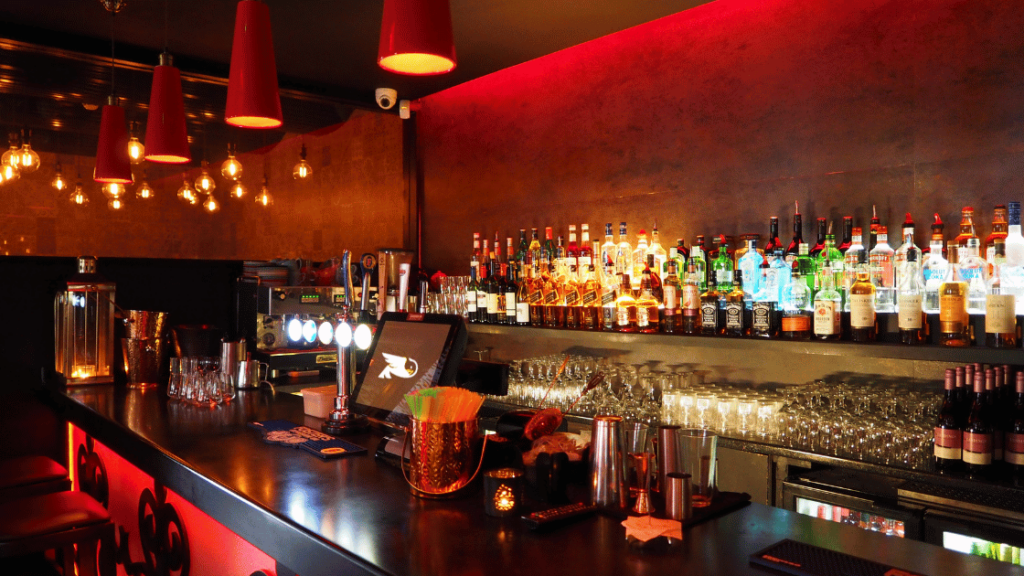Thinking about serving cocktails, wine, or craft beer at your Denver restaurant?
You’ll need more than a great drink menu—you’ll need a liquor license. And in Colorado, that means navigating a multi-step approval process with both the city and the state.
From neighborhood notices to public hearings and fingerprinting, getting your liquor license isn’t something you can tackle last-minute.
In this post, we’ll walk you through exactly what to expect, how long it takes, and how much it costs—so you can serve responsibly and stay compliant from day one.
About Denver Colorado Liquor License (Alcohol Beverages)
If you intend to serve alcohol, you will need to obtain a liquor license in addition to the food license. In Colorado, liquor licensing is a dual process involving both the local authorities and the state.
For a restaurant, the typical license category is the Hotel and Restaurant Liquor License, which allows beer, wine, and spirits to be served on-premises with food sales being a primary business.
The Application Process
You will apply through the City’s Department of Excise and Licenses, which acts as the Local Licensing Authority for Denver.
The application will then also be reviewed by the Colorado Liquor Enforcement Division at the state level.
Key requirements include:
- Proof of legal right to the premises (lease or deed)
- Fingerprinting and background checks for owners
- A detailed diagram of the premises, including any patio where alcohol will be served.
- Neighborhood notification.
Colorado liquor law requires you to post a public notice of the application on the premises for at least 30 days and often to attend a public hearing where local residents or businesses can voice support or concerns.
In Denver, a hearing officer or the Excise and Licenses Department will evaluate whether the “needs and desires of the neighborhood” support the license.
Timeline
The liquor licensing process is one of the longer lead-time items. By state law, certain steps (like the 30-day posting period) cannot be skipped.
Typically, liquor license approval takes about 2 to 3 months in Colorado under ideal conditions.
Denver’s official guidance suggests a minimum of 120 days (about 4 months) for license processing–this accounts for potential delays, scheduling of hearings, and obtaining state approval.
The Colorado Restaurant Association notes that it can take 30 to 90 days to process a liquor license application depending on the complexity, but in a big city like Denver, leaning toward the longer side is prudent.
In any case, you should begin the liquor license application early. You can start it while your building is under renovation, as long as you have site control and your zoning permit.
Denver will not finalize a liquor license until the premises is ready (zoning and occupancy in place), but starting early is crucial due to the built-in waiting periods.
Costs
Liquor licenses have several fees. You will pay both State fees and City fees.
For a Hotel and Restaurant liquor license in Colorado, the state application fee is typically a few hundred dollars, and the state license fee is on the order of ~$500 per year (these exact amounts are set by the state annually and vary by license type).
The City of Denver’s fees for a new liquor license include a Denver application fee (often in the $1,000+ range) and an annual city license fee (several hundred dollars).
In total, getting a new liquor license for a restaurant in Colorado can range roughly $1,550 to $5,000 when you combine all state and local fees. A standard restaurant serving all types of alcohol will be nearer the lower end of that range.
As a quick example, Denver’s fee schedule (as of recent years) listed the local Hotel/Restaurant application fee around $1,000 and annual fee around $500, while the state’s fee was similar (rough numbers for illustration).
You may also have ancillary costs—fingerprinting fees, publishing the hearing notice in a newspaper, etc.
It’s wise to budget a couple thousand dollars for the liquor licensing process.
Once issued, liquor licenses must be renewed annually (with a renewal fee), and owners/managers must maintain compliance with all liquor laws.
Agencies and Approvals
The Denver Department of Excise & Licenses will be your primary point of contact. They provide application forms and will coordinate the local hearing.
After local approval, the application goes to the Colorado Liquor Enforcement Division (LED) for final state approval (which is often a formality if Denver approves, but it’s still required).
Official resources include Denver’s liquor licensing webpage and Colorado LED’s website, which provides a fee schedule and state forms.
Pro Tip: Keep in mind, you’ll also need all your key personnel who serve alcohol to have state-approved Server Training (e.g., TiPS or ServSafe Alcohol) – not a permit, but a requirement to legally serve.
And once open, Denver will require you to post the liquor license and obey all Denver and Colorado liquor regulations (hours of service, etc.).

